Anyone Using Milorganite for Vegetable Garden?
I'm just curious. It is claimed that Milorganite is "oragnic" and safe for home vegetable garden. But again, Milorganite comes from sewage waste and contains various traces of mineral or metal. I know they test for the safety. But should we really use Milorganite for our vegetable garden or orchard?
Or we should use the real organic fertilizer, such as blood meal, bone meal or cottonseed meal?
Comments (53)
RedSun (Zone 6, NJ)
Original Author9 years agoAll the discussions are in lawn forum. I have no problem with using Milorganite for lawn, trees or shrubs. I'm just not sure about putting it in my vegetable garden, or blueberry bushes.
howelbama
9 years agoI would not use it on my veggies or any edibles. That's just me though.
I wouldn't use OceanGro on my veggies either.
Related Professionals
Ashland Landscape Architects & Landscape Designers · Hyattsville Landscape Architects & Landscape Designers · Lowell Landscape Architects & Landscape Designers · Surprise Landscape Contractors · Alamo Landscape Contractors · Belmont Landscape Contractors · Chattanooga Landscape Contractors · Cicero Landscape Contractors · Crystal Landscape Contractors · Davidson Landscape Contractors · Mission Viejo Landscape Contractors · North Potomac Landscape Contractors · Post Falls Landscape Contractors · Westford Landscape Contractors · Goldenrod Landscape Contractorszzackey
9 years agoI used to clean big condo apartments with several bathrooms daily. I wouldn't want any of that toilet waste in my garden!
sunnibel7 Md 7
9 years agoI hope no one here uses composted manure either! Talk about parasites and poop! Hahaha, just my little joke. I don't use it, But that's because it costs $ and I have access to free horse manure.
theforgottenone1013 (SE MI zone 5b/6a)
9 years agoIf I were growing corn I would *consider* using Milorganite as it's cheap compared to other forms of organic nitrogen fertilizer. But that's the only crop I'd use it on.
Rodney
2ajsmama
9 years agoNOP doesn't allow it in certified organic growing. But I've posted on that before.
theforgottenone1013 (SE MI zone 5b/6a)
9 years agoI didn't know that and didn't read any of the links Dave gave prior to my initial posting. But I did just do some quick reading and after learning more about it, I wouldn't use it on veggies. Came across a Cornell fact sheet that advises 38 months between application and planting of a (non-organic) food crop.
Rodney
Here is a link that might be useful: Home Garden Use of Milorganite
This post was edited by theforgottenone1013 on Mon, Oct 27, 14 at 14:41
RedSun (Zone 6, NJ)
Original Author9 years agoBefore I thought I could use it on my lawn. But after reading more, I do not think I'd use for that. The fertilizer stays on the lawn. We walk on the lawn and kids may play on the lawn. So I do not want anyone to bring the fertilizer to the garage and sometimes into the home.
Then the only place I can use would be trees and shrubs. Those places are not disturbed.
zzackey
9 years agoThere used to be a Milorganite plant in Philadelphia. We would drive by it and get to enjoy the smell of it brewing. That was when it first came on the market back in either the 70's or 80's. I was always glad I didn't live anywhere near there! Phew!
gardengal48 (PNW Z8/9)
9 years agoWhile not approved for certified organic growing, biosolids (like Milorganite) are frequently used as fertilizers on edible crops and are often included in prepared organic fertilizers and composts.
And excluding the "ewww" factor, human urine is a popular and widely used additive to home compost piles
Here is a link that might be useful: the case for biosolids
RedSun (Zone 6, NJ)
Original Author9 years agoYou just never know what people put in the public sewage system. There are some irresponsible people. They throw medical pills in the system all the time.
Also, some distance down, it is Chicago/Indiana industrial zone. We visited the Indiana Dunes. There are dead fish all over the places. Clearly the fish were poisoned from industrial waste into the Lake Michigan. Wisconsin side should be cleaner, but it is still not desirable.
digdirt2
9 years agoAll the discussions are in lawn forum.
The Lawn forum links are only a portion of the many discussions about it. They are also on the Compost & Soil forum, the Roses, Hosta, Tomato, Orchards, Organic Gardening, Seed Starting etc. etc. etc.
Dave
daninthedirt (USDA 9a, HZ9, CentTX, Sunset z30, Cfa)
9 years agoIn central Texas we have "Dillo Dirt" which is composted bio-solids -- yard trimmings with some sewage sludge. Nice texture. No smell. The city of Austin says that it is within federal standards for food gardening, though some consider the heavy metal content a little on the high side.
Aside from that, I myself have ABSOLUTELY no hesitation about using it for food gardens. As noted above, if you're shoveling steer and horse manure on your garden, that has probably much less well control for sterility and hazardous material, it would be pretty silly not to use this stuff. That is, lab tests are done on the stuff regularly. Gardens are full of poop. Get over it.
If the city of Milwaukie says it's good for gardens, and they have testing to support that, and can claim it's well mixed, then I can't say it's any worse than the veggies you get in the Milwaukie grocery stores, that probably have to adhere to similar testing regimens.
RedSun (Zone 6, NJ)
Original Author9 years agoWell, one main reason we grow our own fruits and vegetables is that we believe our produce is cleaner and healthier than what we bought at stores, organic stores included.
For the past few years, I've not used any lawn weed killers. No chemical fertilizers on my garden, just some bone/blood/cottonseed meals. And some home made compost, leaves and wood chips. Yes, my yield is lower than that heavily fertilized, but I'm ok with it.
What concerns me is not how this stuff is made, but the fact that they do not test for all the metal contents, but just some of them. And some of the bio-chemical stuff not tested, such as residuals from some medicine....
elisa_z5
9 years agoI do not like Milorganite
I do not like it, RedSun Jerseyite
I would not use it on a farm
I would not use it on a lawn
I would not use it here or there
I would not use it anywhere!
I do not like it to grow fruit
I do not like the people poop
I would not, could not eat its lead
It would not, could not help my head
I do not like Milorganite
I do not like it, Jerseyite!(Um . . been hanging out w/ grand daughter and Dr. Seuss :) )
This post was edited by elisa_Z5 on Wed, Oct 29, 14 at 6:31
zizania
9 years agoI live close to the Milorganite plant (I suppose I must be a.... contributor) and NO WAY would I use it for anything. Just a little too close to home.
seysonn
9 years agoProducts from sewage treatment plants is much better than what is made from household trash/waste.
What does go into sewage ? : Human waste , cleaning products (soaps, detergent,..). Those none human waste products are standardized not to pollute the environment.Another thing is that raw sewage is bio-degraded/composted and broken down in the plant. So perhaps Milorganite is not that bad. I would not use it on root crops (radish, carrots, potato ..) but wouldn't mind using it on other garden veggies. Actually it is not worse than chicken manure. I have seen a lot of chicken bone in them.
elisa_z5
9 years agoMy biggest objection is the heavy metal levels in it, especially cadmium, mercury and lead. The most conservative states recommend that children not play around soil that has higher than 100 ppm of lead in it. Milorganite is at 120 ppm, and while I realize that won't instantly bring my soil levels up to over 100 ppm, I still don't want to be adding that to my soil.
For anyone interested, I'll post a link below that allows you to check out the heavy metal levels of most fertilizers.
Here is a link that might be useful: fertlizers
zeedman Zone 5 Wisconsin
9 years agoEliza, thanks for the belly laugh, and for the great link. As an organic gardener, I don't use fertilizers... but it is a good reference for those of my garden friends who do.
"...Products from sewage treatment plants is much better than what is made from household trash/waste.
What does go into sewage ? : Human waste , cleaning products (soaps, detergent,..). Those none human waste products are standardized not to pollute the environment."I must respectfully disagree. When yard & household garbage is composted, the person doing the composting knows what is (and is not) present in the raw material. The same can not be said of municipal waste, including sewage waste.
The problem is, those (supposedly) safe household chemicals are not the only things which find their way into our sewage system. Anything which can be flushed, will be flushed, especially when waste recycling fees & regulations can be bypassed by doing so. IMO, increasingly prohibitive waste disposal regulations are actually doing more harm to the environment than good, by making proper disposal of toxic materials less convenient than it should be.
Hazardous chemicals, poisons such as insecticides & herbicides, paint, automotive fluids (including antifreeze & engine oil), pharmaceuticals... the list is endless, and unaccountable. I seriously doubt that each lot of milorganite is tested for the broad array of toxins which might be present.
IMO, the uncertain level of toxicity in milorganite makes it unsuitable for use not only on vegetable gardens, but on any ground that might one day be used for that purpose.
drew51 SE MI Z5b/6a
9 years agoMy biggest objection is the heavy metal levels in it, especially cadmium, mercury and lead. The most conservative states recommend that children not play around soil that has higher than 100 ppm of lead in it. Milorganite is at 120 ppm,
What the heck are people eating in Milwaukee?
I know some won't use cottonseed meal because of the pesticides used on the crop. Often horses eat hay that contains herbicides, that do not seem to break down. It's hard to get away from it, well unless you go synthetic.elisa_z5
9 years ago"What the heck are people eating in Milwaukee?"
maybe lots of Quarry breakfast cereal?
drew51 SE MI Z5b/6a
9 years agoYeah I'm at a loss for the lead content? I used it on my grass this year, first time. And you know right now in Michigan, fall, cold, on my block, my grass is by far the greenest. The stuff is excellent..
Scott Dennis
7 years agolast modified: 7 years agoI would say no. Put it this way, they say you can use it as deer repellant. Chances are they know you shouldn't eat the stuff. As others have suggested there are crazy levels of heavy metals.
Just search on YouTube and look at the stories of farmers who were using this "organic compost" from sewage sludge on their pastures. It was killing their cattle from the heavy metal content. While proper composting will kill 100 percent of the parasites and bad bacteria (certain bacteria are healthy for your soil) composting does not kill the metals and HORMONES flushed down the system. Think of all the birth control medicines working throughout the system, and drugs (legal and not) flushed. Composting does not kill that and it becomes a part of this product.
Yes I have used it once on a field for my winter cover crop as a deer deterrent only. I've used on the lawn once this year (I don't want this in my well). But 72 pounds is all I'll ever use of this product. I think chemical fertilizer is far safer.
drew51 SE MI Z5b/6a
7 years agoJust to be clear it repels deer because it smells of human waste, They hate dog waste too. It's the organic part, not the metals that keep deer out. I still use it on my grass and 2 years later I still have the best grass on the block. I have been researching now, and found out that Scott's regular lawn food has more lead than Milorganite so i went back to it.
Kathy Youngblood
7 years agoMilorganite is safe for use in vegetable gardens and orchards. The formula has changed in the last few years. If you notice on the bag's label there are instructions for using in vegetable gardens and fruit trees. For years I only used it on roses but they have changed something in the process/manufacture that makes it's use on vegetables, etc... safe.
digdirt2
7 years agoIt has always claimed it was safe for use on food crops but that manufacturer claim doesn't make it true. The use of it in a vegetable garden is an individual choice but choosing to do so doesn't mean it is safe. There are numerous other products that do NOT have its history and many issues that one can use. There is no justifiable reason for using it rather than the many other commonly used products.
Dave
drew51 SE MI Z5b/6a
7 years agolast modified: 7 years agoI would disagree, it's a great product and has less heavy metals than many other fertilizers. Besides that it works, my grass is the greenest on the block. I use it for edibles occasionally. The scary myths about the product have no basis is reality. You may think you're safer not using it, but you would be mistaken as no evidence exists to prove these claims.
The EPA has approved the product for use on edibles, it is not just a manufacturer's claim. Blogs, articles stating otherwise, or quoting fake studies don't
impress me, show me actual studies, not exist else the EPA would not
have approved product.Milorganite meets U.S. "Exceptional Quality" standards - the most
stringent regulations in the fertilizer industry, and this means it's
safe for use in vegetable gardens, orchards, and other food gardens.Outdoor_Lady (Nevada)
7 years agoI too disagree. According to Milorganite's data compiled from 2016, their heavy metals content is ***considerably less*** and EXCEEDS the U.S. EPA's Exceptional Quality standards. See Table 2-1 of EPS's Chapter 2 on Biosolids and compare to Milorganite's website. No, I don't work for them, but I have several fruit trees in my backyard and had to see this info with my own eyes before making a purchase today. Possibly 2.5 years ago, it was different then?
https://www.epa.gov/npdes/pubs/503pe_2.pdf
http://www.milorganite.com/using-milorganite/safety
daninthedirt (USDA 9a, HZ9, CentTX, Sunset z30, Cfa)
7 years agoI agree about the safety of properly produced biosolid-based compost, which I have to believe Milorganite represents. But hey. Milorganite smells like human waste? Really? I want to put that on my vegetable garden? My sources of composted biosolids sure don't smell of human waste.
Scott Dennis
7 years agoThink about what you are saying, "according to Milorganite's data." Now I hate to be cynical, but we're not talking about a reputable third party's results. We're talking about information from the company selling the product. Also, many of the videos detailing the dangers of sewage sludge in general state explicitly the EPA is complicit in changing their rules of what they deem to be safe concerning sewage sludge. Just like the definitions of what the EPA consider as "grass-fed" for beef and "free-range" for chickens is NOT what most would think when they hear those terms. But this product is made from the same type of sewage sludge responsible for deaths of many cows in Georgia. Composting will NOT rid the sludge of heavy metals and all the human waste by-products (i.e. birth control, hormones, medicine etc). Let the buyer beware.
daninthedirt (USDA 9a, HZ9, CentTX, Sunset z30, Cfa)
7 years agolast modified: 7 years ago"Think about what you are saying, 'according to Milorganite's data.' Now I
hate to be cynical, but we're not talking about a reputable third
party's results"Potential cynicism aside, Milorganite is produced and marketed by the Milwaukee Metropolitan Sewerage District, which is a government agency. The EPA, which weighs in on this as well, is also a government agency. Sounds pretty "reputable" to me. It is not a profit-making "company" selling the product. Yes, let's think about what we're saying.
You focus on heavy metals, which we are told by reputable sources largely aren't there and, quite frankly, the manure-based compost you buy from real profit making concerns is LOADED with medicines and hormones. Let the buyer beware.
digdirt2
7 years agoIt isn't as if it is the only product or the least expensive or even the most effective product available. So what possible justification is there for using it as a vegetable garden fertilizer?
Dave
daninthedirt (USDA 9a, HZ9, CentTX, Sunset z30, Cfa)
7 years agolast modified: 7 years agoOur own biosolid-based compost -- Dillo Dirt -- is, frankly, the cheapest compost you can get bagged in the big box stores around here. You can get a truck load of it unbagged as well for a lot less. Lowes and Home Depot used to have REALLY cheap compost, but that was mysteriously pulled, probably because of herbicide contamination. Dillo Dirt, like Milorganite, is analyzed up the kazoo, so unlike "Joe's Fine Compost", I actually have a clue what is in it that is based on more than Joe's smile. The justification for using it is that I know exactly what is in it, and I trust the city government purveyors to responsibly tell me that.
But making your own compost is by far the best strategy. If you can make your own, there is no possible justification for using compost you purchase.
I should add that the "effectiveness" of compost is not entirely well defined. If it's organic material, that organic material is going to have loads of natural oils and proteins that are packed with NPK and trace elements. I'd have a hard time pointing at one compost and calling it more effective than another.
Scott Dennis
7 years agolast modified: 7 years ago"Potential cynicism aside, Milorganite is produced and marketed by the Milwaukee Metropolitan Sewerage District, which is a government agency. The EPA, which weighs in on this as well, is also a government agency. Sounds pretty "reputable" to me. It is not a profit-making "company" selling the product. Yes, let's think about what we're saying."
So let's analyze these reputable agencies for a second. The Metropolitan Sewerage District benefits immensely from selling the sewage sludge to a company. It is no longer their problem to get rid of, and the make money from it. Even if the company "takes it off their hands for free" the agency no longer has the problem with disposal.
And let's consider the EPA for a moment, which is the same government which says (through the FDA) that it's okay to put Trisodium Phosphate in breakfast cereal (Lucky Charms is NOT so lucky). So I would HARDLY consider an agency which benefits from sewage sludge removal and a government who continues to allow food manufacturers to poison the populace as "reputable sources."
I for one will stick to organic compost which I control from start to finish. The saying is "you are what you eat," and the plants pull directly from the soil all of those metals and medicines that the composting process will not get rid of. No way I would feed that to my children. As I said, "let the buyer beware." At a minimum, everyone should research it fully before using it, and if someone decides "that's good enough for me" then that's all anyone could ever ask. However, it's not sufficient for me to have the blessings of the EPA (from the same government that poisoned my drinking water as a Marine) and an agency which benefits from getting rid of this sludge saying "it's safe."
daninthedirt (USDA 9a, HZ9, CentTX, Sunset z30, Cfa)
7 years agolast modified: 7 years agoThe MSD and EPA are not "profit-making" enterprises. Their existence isn't based on profit. You trust your profit-making supermarket to sell food you buy, but you won't trust these folks whose job is to keep the public safe? You seem to presume that TSP is some sort of poison. It is roundly established in the research literature that it is not, as a food additive. It is an approved food additive everywhere. But oooh, it's got a CHEMICAL name, and a complicated one at that. That makes it baaaad, right? I've heard that a lot before. Gotta watch out for that di-hydrogen oxide.
I will completely agree with you, as I've said before here, that I will stick with my own compost which I control from start to finish. If you want it to be organic, you can make it so. I actually don't care. I want my compost to be safe. Not necessarily the same thing.
Daniel Ogden
6 years agoFirst off I have always used it and I get rave complements on my veggies and fruits plus 7 years best fruits and veggies in the town agriculture contest but you guys keep using that cow poo. You know the type that can contain mad cow disease and other animal born diseases. Has anyone looked intocthe care they take in Milwaukee in making this fertalizer? No didn't think you did. Anyone want to swap heirloom seeds. I have seeds directly from Italy. My neighbor is from Italy and his Dad is 80 and farms every year. They've been using fertilizer much like Milorganite forever. While we have ben using the iron deficient cow poo.
KarenPA_6b
6 years agoHere is an article and interview with an EPA insider and whistleblower regarding biosolids used as fertilizer. I was thinking about getting milorganite to use on my roses and in my research found this article. Not sure if I want to breath in this stuff as I spread them on my roses.
https://articles.mercola.com/sites/articles/archive/2015/11/01/biosolids-fertilizer.aspx
drew51 SE MI Z5b/6a
6 years agolast modified: 6 years agoMilorganite has tested very safe compared to many other fertilizers. You're linking to a guy who was fired 22 years ago, things have changed drastically since then. Scott's lawn food has more heavy metal in it than this product. The research is out there, and I myself would not rely on what was said 22 years ago to sell books.
In that article he sites no scientific research to support his claims. He is basically asking us to take his word on it. When you don't understand something (no links to back up claim, no studies, reports, or evidence. i.e. no proof of claim) look at the bottom line, (book sales).
daninthedirt (USDA 9a, HZ9, CentTX, Sunset z30, Cfa)
6 years agolast modified: 6 years agoUnderscoring drew51 above, this is an article in a blog by an alternatives proponent, who markets alternative medicines, nutrients, and books through that blog. Alternative facts as well. It is in his fiscal interest to convince you that you're not healthy. I'd listen to the EPA. That's their job, to keep you safe and healthy. You pay them to do that. Yes, biosolids originally had higher concentrations of metals, but these days, more careful regulation and lab tests largely prevent that.
As to vomit, diarrhea, and intestinal parasites, which are referred to passionately way above as being gross, manure compost has pretty much the same thing, and even compost from local organics off the ground is covered with stuff that comes out of both ends of animals. Hold your nose and get used to it.
gardengal48 (PNW Z8/9)
6 years agoTo be accurate, biosolids sold as a fertilizers are totally safe. They are processed in such a manner as to eliminate all pathogens - in fact, they are likely a lot safer in that regard than home compost or manures!! The primary concern used to be heavy metals but that also has been eliminated in most cases. WA state evaluates all commercial fertilizers and soil amendments for heavy metals and will prohibit their sale if above acceptable levels. Milorganite is well within those limits.
drew51 SE MI Z5b/6a
6 years agolast modified: 6 years agoThe heat treatment will kill all parasites, that should not be a concern.
Milorganite is not only regulated as a fertilizer, it is also regulated as a biosolid. It meets the highest standards we have. If you still think it is unsafe than the blame is with the EPA and other regulatory bodies because Milorganite exceeds the standards, it is tested daily too.
My problem is these critics have underlying agendas, who believe the ends justify the means(lying, spin and deception). I myself do not. Either your statements stand on merit or they do not. In the case of Dr. Lewis, his claims have no merit. He quotes the grandson of Eisenhower as some kind of proof his claims have merit. the closest he gets to it. Very sad.
KarenPA_6b
6 years agoDo you have results of testing of Milorganite that are done by independent third party labs that are not affiliated with the EPA, USDA or the Milorganite producer? I would be interested to see the results before deciding to use it on my garden. But the only information I have seen on the web are only from EPA and the producer.
daninthedirt (USDA 9a, HZ9, CentTX, Sunset z30, Cfa)
6 years agoSo the EPA and USDA are "bad guys"? I don't understand this. They ARE independent third party labs that have no economic stake in the matter, and are constituted specifically to protect the public. Joe's Independent Chemical Lab has no such mandate, and assurances from them sure isn't going to influence my decision to use this stuff on my garden.
digdirt2
6 years ago"Do you have results of testing of Milorganite that are done by
independent third party labs that are not affiliated with the EPA, USDA or the Milorganite producer?"So all government research is automatically suspect? Any lab, private or public, that researches agricultural products will have some ties to USDA and/or EPA at the very least.
Current research into the product by other than the manufacturer is essentially none. Little demand or interest in doing it primarily because it has been around and in use for decades.
So ultimately, as with most things, using it or not comes down to your personal choice.
Dave
KarenPA_6b
6 years agoI am not saying they are the "bad" guys. I am sure all the lab people and the laymen working for these agencies are good and honest. I just don't trust the people in the upper echelon of these agencies. Most or maybe all of the people running and managing these agencies have conflict of interest due to the practice of revolving doors. When the results are not favorable to the corporate interests they represent, they suppress the release of such information or they totally omit that part of the information. Too much industrial and corporate interests are vested in the outcomes of these studies and lab results. There are also too many instances where the corporate interests are placed before the interest of public health. You can find these instances in the following: addition of flouride into public water supply, suppression and manipulation of data by the CDC regarding MMR vaccine's role in autism, glyphosate's safety when review of Monsanto's records tell a different result...
Glyphosate (Roundup)was once touted as safe for human use and approved by EPA. I unfortunately had believed these claims and used it in my home garden. Now studies have shown that exposure to this chemical can cause cancer and kidney failure and other health problems. All I am doing here is trying to protect myself from such a repeat of an occurence. I don't want to find out a few years from now that Milorganite maybe toxic. By that time, the damage is already done and the soil in my garden contaminated. Look I am not trying to stop people from using this stuff. If anyone is comfortable and ok in using this in your home, by all means use it. I am just asking for independent lab testing and its results. If you can provide me with this information, I am grateful.
daninthedirt (USDA 9a, HZ9, CentTX, Sunset z30, Cfa)
6 years agolast modified: 6 years ago"I just don't trust the people in the upper echelon of these agencies."
Uh, so we'll just trust people in lower echelons? Yep, Joe's is pretty low echelon. Let's trust them! I'll bet Joe even has some lower level interns we can trust even more.
Yes, the government agencies often have to withstand appeals by corporate lobbyists. But at least they publish their research. You can read the MSDS's yourself. Their research isn't good enough? Then give them a little more money so they can do it better. New results don't make the old results lies. They make the old results better.
Glyphosate is a recognized carcinogen IN HUGE QUANTITIES. Lots of stuff you eat right now is carcinogenic in huge quantities. Processed and red meats, alchohol, coffee, etc. etc. The European Chemicals Agency (which is the EPA of the EU) wouldn't even call gyphosate carcinogenic, because the risks are so low. Glyphosate degrades in soil via bacterial action. So it goes away. If you put it on your soil you have in no way permanently poisoned your soil.
You're not trying to protect yourself. You're trying to ignore advice from qualified people. Sorry about my tone, but I'm impatient with people who do that.
I think it is very smart to be careful about what we eat and grow, but we have to do that smartly. Blanket denialism doesn't help.
theforgottenone1013 (SE MI zone 5b/6a)
6 years agolast modified: 6 years agoBeing skeptical about various claims made is perfectly fine. But when current scientific testing points to something being generally safe to use and one denies that testing outright it can cause others to lose patience, hence the tone in Dan's previous comment. Sure, there have been many, many times that something was considered safe but years down the road that was proven false. It happens all the time and it will happen again. It could happen with Milorganite but it might not. The only advise one can give on this subject is to do what makes you feel comfortable. If one is skeptical about a product then use an alternative. I have used Milorganite on my lawn a couple times since I last commented several years ago but will still not use it around my vegetables and berries. Not because I think it is unsafe, as the product has supposedly been cleaned up quite a bit, but because there are other sources of organic matter and nutrients that I prefer to use instead.
Rodney

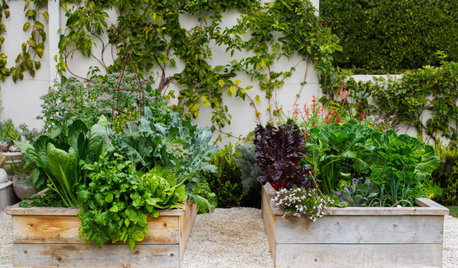


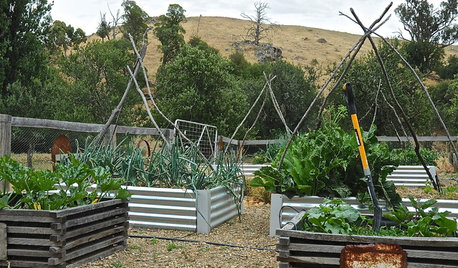

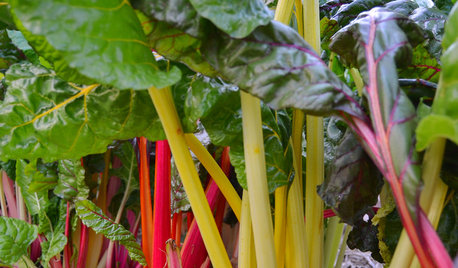
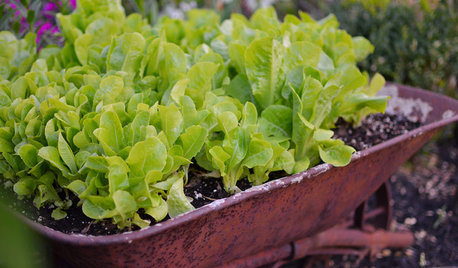








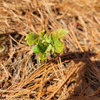

pnbrown